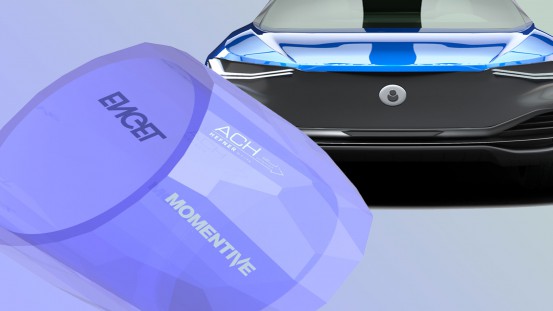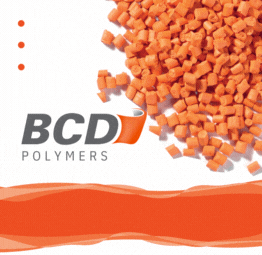Temperature resistance with increased flame retardancy
The new LSR grades NL6830FR and NL6850FR, both in dark gray, meet the UL94-V0 requirements at 1 mm thickness. With Shore A hardnesses of 35 and 45, respectively, they combine balanced yet very good mechanical properties with low compression set. Possible applications therefore include seals in the intake area of combustion engines, collective seals and O-rings, for example for use in sensor technology and in the drive area of electric vehicles requiring flame resistance.
Self-lubricating for hard-soft composites
Silopren™ LSR 2725/40 is a further developed, self-lubricating grade. It enables the cost-efficient production of rigid-soft composites in which engineering plastics including PBT are overmolded, for example molded parts with integrated sealing or damping. Because Silopren LSR 2725/40 forms good initial adhesion to the substrate very quickly, short cycle times are possible. Full adhesion is achieved during subsequent storage at room temperature. At the same time, a migration process takes place, which gives the LSR surface its self-lubricating property that facilitates assembly processes. The material is resistant to high temperatures and flexible at low temperatures, combines good dielectric and mechanical properties and can be easily colored.
Even lower curing temperatures
Momentive will present the third generation of its LTC-LSR (Low Temperature Cure Liquid Silicone Rubber) at K 2022. This new liquid silicone rubber cures at even lower temperatures than the development grade presented at Fakuma 2021. This allows the mold temperature to be lowered even further while maintaining the same short heating time, thus saving energy. This can contribute to more sustainability through reduced energy consumption and enables combinations with compounds containing temperature-sensitive formulation components. Alternatively, it is now possible to almost halve the crosslinking time compared with a standard LSR, such as Silopren LSR 2050. Subsequent annealing is not necessary.
Momentive will be demonstrating the processing of the new LTC-LSR at its booth on a Victory 100-120 injection molding machine from Engel Austria GmbH. In this process, a fully automated mold with cold runner and valve gate system from ACH Solution GmbH is used to produce thick-walled, translucent tea light holders as giveaways that resemble cut glass in appearance.
Sustainable Hardcoat solutions for the protection of automotive exterior parts
Also at Booth B15 in Hall 6, the Hardcoats division of Momentive will present sustainable material- and energy-saving solutions in the field of crystal-clear, scratch and weather-resistant protective coatings for automotive exterior parts. Applied as an ultra-thin layer to the surface of plastic parts, Hardcoats reliably protect against damage caused by UV-radiation and mechanical and chemical stresses.
Applications in automotive exteriors include forward lighting, decorative trim and sensor covers. Increasingly, the focus is on plastic front modules that are replacing classic radiator grilles on electric vehicles. Long-lasting Hardcoat solutions can be applied evenly to such large, three-dimensional surfaces, saving time, materials, and costs.
Momentive will be demonstrating what is possible with a live digital printing demonstration installed at the trade show booth together with the company FPT Robotik. This enables the scratch-resistant coatings to be printed with sharp contours onto a three-dimensional polycarbonate component using drop-on-demand inkjet technology. In an improved process, only the drop that is actually needed leaves the nozzle. This free-form digital printing process, which can be used on a large scale, also delivers high-quality results on component edges and for complex shapes. The demonstration will take place in a pilot booth where the print head is guided robotically over the component.
Momentive will also provide information on research topics, including easy-to-clean coated surfaces for sensor elements, such as LiDAR or cameras, and will show current examples of front modules from serial production.



